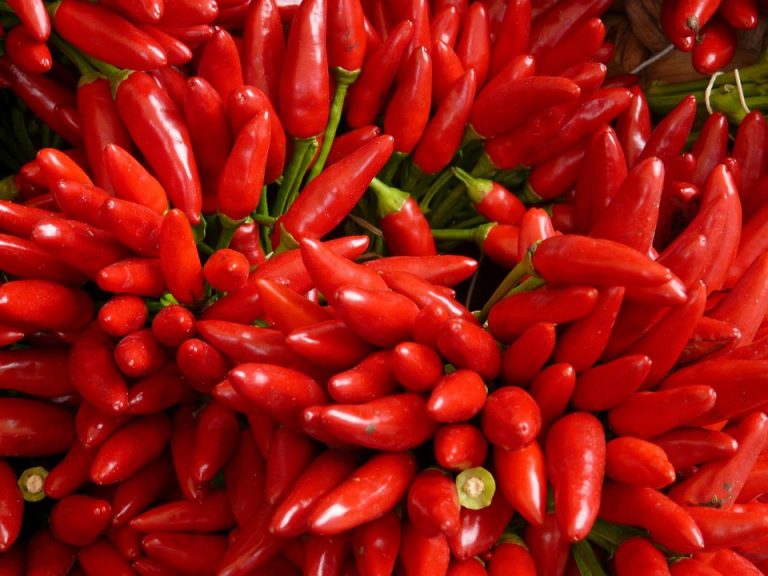Have you ever felt like your stomach is a balloon ready to burst? You’re not alone. Stomach bloating is a common issue that can leave you feeling uncomfortable and irritable. It can stem from various factors, including diet, stress, and even certain medical conditions. But what if I told you that a little green plant called moringa could offer some relief? Moringa, often referred to as the “miracle tree,” has been used for centuries in traditional medicine. Let’s dive into five remedies using moringa that can help banish that bloated feeling fast.
Contents
What is Moringa?
Before we jump into the remedies, let’s get familiar with what moringa actually is. Moringa oleifera is a fast-growing tree native to parts of Africa and Asia. Its leaves are packed with nutrients—think vitamins A, C, and E, as well as minerals like calcium and potassium. It’s no wonder moringa has gained popularity as a superfood in recent years. But beyond its nutritional profile, moringa possesses anti-inflammatory and antioxidant properties that can be particularly beneficial for digestive health.
1. Moringa Leaf Tea
How It Works
One of the simplest ways to incorporate moringa into your routine is through tea. Moringa leaf tea is rich in antioxidants and can help reduce inflammation in the digestive tract. Drinking warm tea can also stimulate digestion, which might ease that bloated feeling.
How to Make It
-
Ingredients:
- 1 teaspoon dried moringa leaves (or 1 tea bag)
- 1 cup hot water
- Optional: honey or lemon for taste
-
Instructions:
- Boil water and let it cool for a minute.
- Add moringa leaves or tea bag to the hot water.
- Steep for 5-10 minutes, depending on your taste preference.
- Strain the leaves (if using loose leaves) and add honey or lemon if desired.
Pros and Cons
Pros: Quick and easy to make, soothing for the stomach, and hydrating.
Cons: Some might find the taste a bit earthy. If you’re not used to herbal teas, it might take some getting used to.
2. Moringa Smoothie
How It Works
Smoothies are a fantastic way to get a nutrient boost, and adding moringa powder can help minimize bloating. The fiber in fruits and vegetables aids digestion, while moringa’s anti-inflammatory properties can help soothe the gut.
Recipe
-
Ingredients:
- 1 banana
- 1 cup spinach
- 1 tablespoon moringa powder
- 1 cup almond milk (or any milk of your choice)
- Optional: a tablespoon of chia seeds for added fiber
-
Instructions:
- Combine all ingredients in a blender.
- Blend until smooth.
- Serve immediately.
Pros and Cons
Pros: Nutrient-dense and delicious, plus it’s a great way to sneak in some greens.
Cons: If you’re sensitive to high-fiber foods, starting with a smaller portion may be wise.
3. Moringa Capsules
How It Works
For those who aren’t fans of the taste of moringa, capsules are a convenient alternative. They provide the same benefits without the need to prep a drink. The capsules can help regulate digestion and reduce bloating over time.
Dosage and Recommendations
- Typical Dosage: Most studies recommend 500-1,000 mg daily, but it’s best to consult with a healthcare provider for personalized advice.
- Tip: Make sure to drink plenty of water throughout the day when taking supplements to aid digestion.
Pros and Cons
Pros: Easy to take and no taste issues.
Cons: Some may experience digestive discomfort if taken in high doses, so start slow.
4. Moringa Powder in Soups and Stews
How It Works
Incorporating moringa powder into your favorite soups or stews not only enhances the nutritional profile but also makes them more digestible. The warmth of the soup can soothe the stomach, while moringa adds vital nutrients.
Easy Recipe
-
Ingredients:
- Your choice of broth (vegetable or chicken)
- Chopped vegetables (like carrots, celery, and spinach)
- 1 tablespoon moringa powder
- Optional: spices like ginger or turmeric for added benefits
-
Instructions:
- In a pot, bring the broth to a boil.
- Add chopped vegetables and simmer until tender.
- Stir in moringa powder and any spices.
- Serve warm.
Pros and Cons
Pros: Comforting, nutritious, and versatile.
Cons: Cooking at high temperatures can sometimes diminish some nutrients, so avoid boiling moringa powder for too long.
5. Moringa Oil for Massage
How It Works
Did you know that moringa oil can also aid digestion? While it’s not a direct remedy for bloating, massaging your stomach with moringa oil can stimulate circulation and potentially relieve discomfort.
How to Use It
- Warm a small amount of moringa oil in your hands.
- Gently massage your stomach in circular motions for about 5-10 minutes.
- You can also add a few drops of essential oils like peppermint for added soothing effects.
Pros and Cons
Pros: A holistic approach that combines the benefits of soothing touch with the properties of moringa oil.
Cons: Requires a bit of time and may not be effective for everyone.
FAQs
1. Can I use fresh moringa leaves instead of dried?
Absolutely! Fresh moringa leaves can be used in smoothies or cooked dishes. Just keep in mind that the flavor might be a bit different.
2. How long does it take to see results from moringa for bloating?
Many people report feeling relief within a few hours, especially from teas or smoothies. However, consistent use over weeks may yield better long-term results.
3. Are there any side effects of moringa?
While moringa is generally safe, some people may experience digestive discomfort or allergic reactions. It’s always best to start with small amounts and consult a healthcare provider if you have concerns.
4. Can moringa help with other digestive issues?
Yes! Moringa has been studied for its potential to help with various digestive issues, including constipation and indigestion, thanks to its high fiber and nutrient content.
Conclusion
Stomach bloating can be a nuisance, but incorporating moringa into your diet may provide some much-needed relief. Whether you prefer tea, smoothies, or even a massage with moringa oil, there are plenty of ways to utilize this nutrient-packed plant. Remember, though, that everyone’s body is different. It might take some experimentation to find what works best for you.
And let’s be honest, while moringa can be a fantastic addition to your health routine, it’s not a cure-all. Always consult with a healthcare provider if you have ongoing digestive issues. Here’s to feeling lighter and more comfortable in your own skin!
This article is for educational purposes only and is not a substitute for professional medical advice. Always consult a qualified healthcare provider before making changes to your health routine.
References
-
Poudel, P. (2020). Nutritional and health benefits of Moringa oleifera: A review. Journal of Food Science and Technology, 57(10), 4185-4198. https://doi.org/10.1007/s11483-020-00881-4
-
Shukla, S., & Gupta, R. (2019). Moringa oleifera: A review on its nutritional, medicinal, and toxicological properties. Journal of Toxicology, 2019. https://doi.org/10.1155/2019/8101432
-
Mayo Clinic. (2022). Moringa: Is it good for you? Retrieved from https://www.mayoclinic.org/healthy-lifestyle/nutrition-and-healthy-eating/expert-answers/moringa/faq-20057819
-
National Institutes of Health. (2022). Moringa oleifera: Potential health benefits. Retrieved from https://ods.od.nih.gov/factsheets/Moringa-HealthProfessional/
-
Harvard Health Publishing. (2023). The benefits of moringa. Retrieved from https://www.health.harvard.edu/staying-healthy/the-benefits-of-moringa
Get Your FREE Natural Health Guide!
Subscribe now and receive our exclusive ebook packed with natural health tips, practical wellness advice, and easy lifestyle changes, delivered straight to your inbox.




